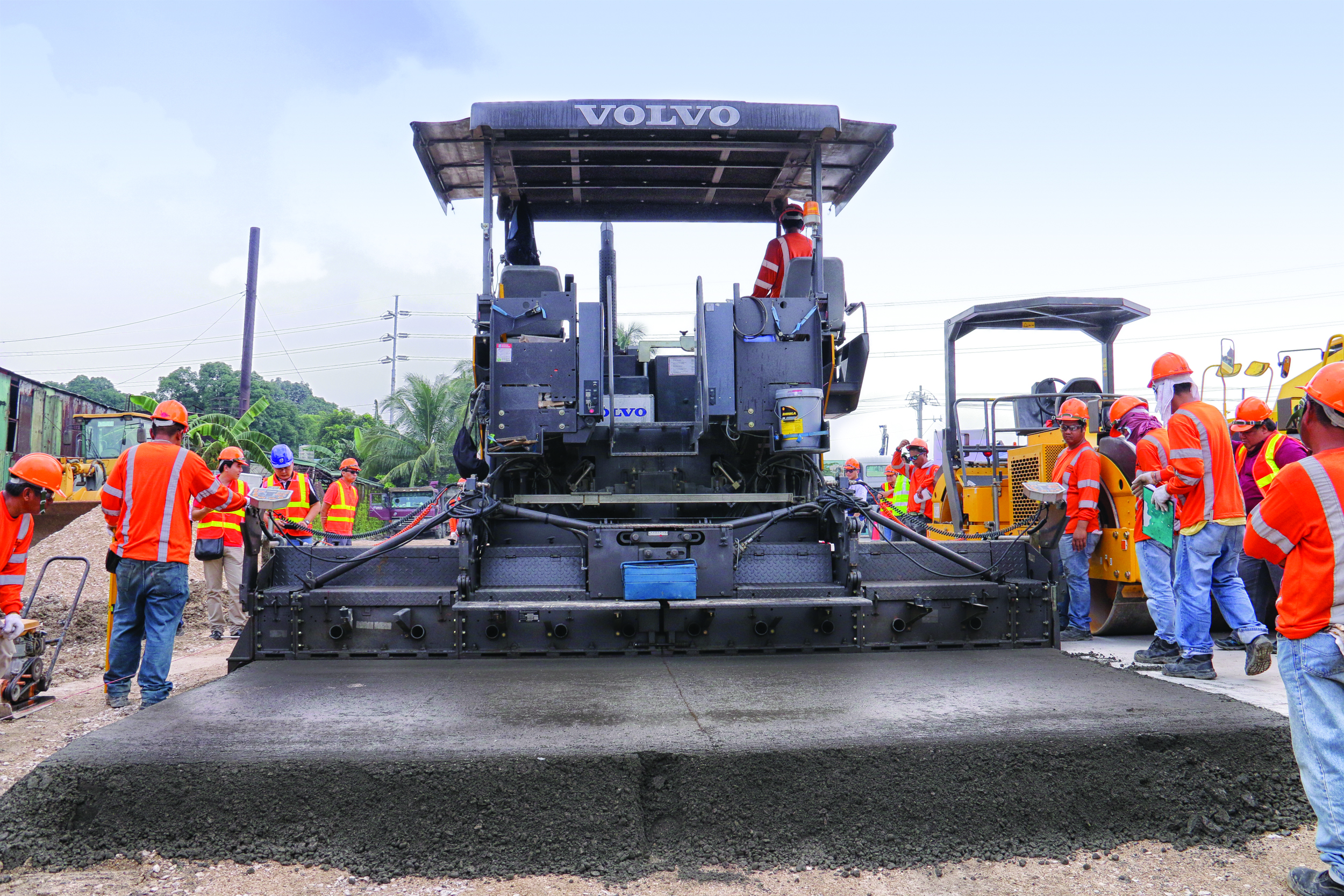
The Philippines has been on a path of enviable economic growth. Strong economic indicators backed by a consistently good GDP performance have propelled the country to be among the fastest growing economies in the world.
To sustain this growth, the government is poised to usher in “a golden age of infrastructure” that will see the construction of roads, airports and railways.
Building solutions company, CEMEX, is positioning itself to serve and contribute to the Philippines’ bold infrastructure development plans with the introduction of Roller Compacted Concrete or RCC best suited for farm-to-market roads and industrial parks.
“Building farm-to-market roads link communities and cities together. It improves access and mobility and will lay a strong foundation for our country’s sustained progress,” said Lyrrah Lequin CEMEX Pavements Manager.
RCC is a fast acting dry mix pavement application that will address construction needs for speed and cost efficiency while achieving consistency in quality.
CEMEX’s RCC is applied using a high density paver and employs the same design methodology and support structure as conventional concrete without the need for reinforcement steel, bars, and forms.
Its elements are made to cling together providing high early strength by combining the strength and durability of conventional concrete with the ease of construction.
“Compared to conventional concrete, CEMEX’s RCC is easier to apply and dries faster. A newly paved road using CEMEX RCC can be passable for vehicles after 72 hours. That cuts down curing and drying to three days compared to fourteen days when using the conventional concrete,” explained Lequin.
CEMEX building materials technology development and application projects are part of the global R&D collaboration network, headed by CEMEX Research Center, based in Switzerland.
RCC effectively achieves all the benefits of conventional concrete in less time and because of its low maintenance requirements, it maximizes construction costs.
Improved infrastructure through roads and pavements is also necessary for efficient logistics and support industries to thrive.
One of the first projects of CEMEX using RCC was the Volvo industrial yard in Novaliches. Volvo, more popularly known to be a car maker, also has a proud tradition in heavy construction equipment or what the company calls “earth-moving machines.”
The industrial yard in Novaliches is a sprawling open lot where Volvo’s heavy construction equipment units are parked.
The 4,000-sqm industrial yard was previously uncovered and unpaved. Downpours would transform the industrial yard into a wet, slushy, muddy puddle stalling equipment assembly and deployment.
“The logistics involved in moving and maintaining such heavy construction machinery necessitates a big open space so the machines can easily be moved and transported. We realized that our rough road surface was impacting mobility and paving our yard would be more efficient for our business needs,” said Ed Lagman, Vice President for Volvo.
Paving the 4,000-sqm lot was constructed in two phases using 200 mm thick CEMEX Roller Compacted Concrete and set into place with the VOLVO high density paver.
Paving the Volvo Novaliches industrial yard became one of the first joint projects of the two companies, CEMEX and Volvo.
“We know that in construction, time is money. It was a major benefit that after only 72 hours, our industrial yard was ready to use and our machines were ready to roll,” said Lagman.
CEMEX’s RCC is part of CEMEX’s commitment to offer innovative building solutions that contribute to nation-building. Together with other product innovations like Promptis one-day concrete – a ready-mix concrete that is made to reach its compressive strength in just 24 hours – CEMEX continues to pursue innovative industry building solutions and efficiency advancements that will promote a sustainable future.
ADVT